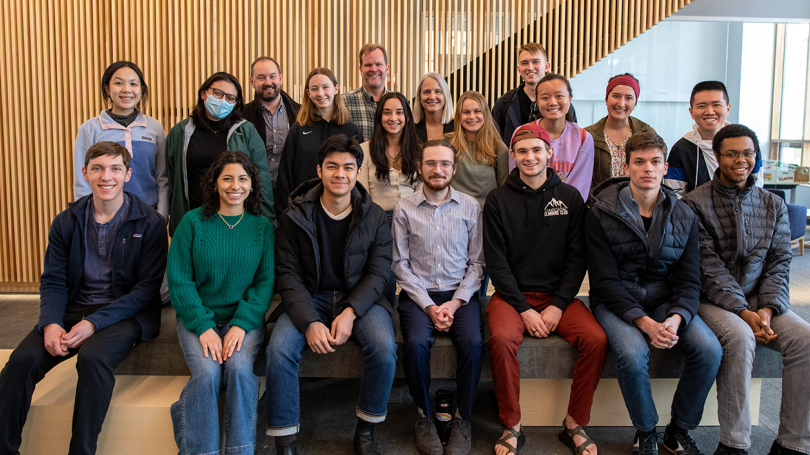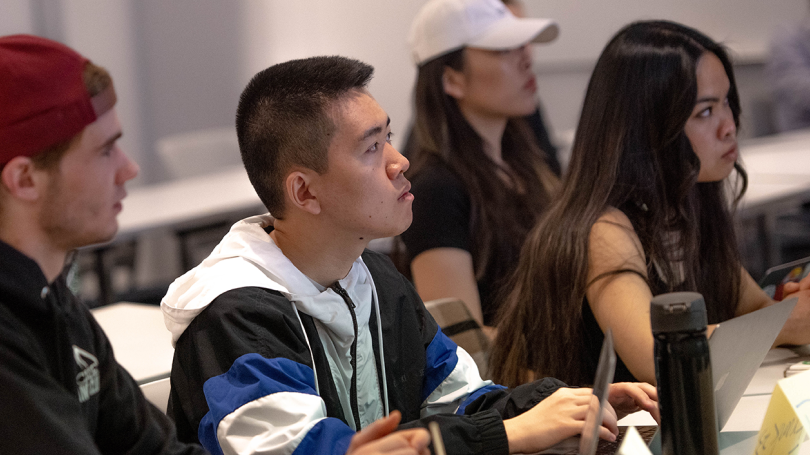On April 29-30, the Irving Institute for Energy and Society hosted its third FERC Bootcamp, a two-day intensive learning experience geared toward Dartmouth undergraduate students. 16 students from a range of majors — including economics, environmental studies, engineering, and government — spent the weekend focused on the basics of how the electricity grid works and energy markets are regulated in the US through a series of formal lectures, informal conversations, and a hands-on simulation.
"Every one of the Institute's bootcamps are designed to give students a deep dive into a critical dimension of energy and society systems," said Institute Academic Director Amanda Graham. "The FERC bootcamp is particularly fascinating in the way it peeks behind the curtain of something many of us take for granted every day, and shows just how technologically and financially complex – and sometimes precarious — our electricity grid is."
This year's bootcamp saw the addition of Gettysburg University experimental economist Rimvydas Baltaduonis to the returning all-star teaching team of FERC Branch Chiefs Jay Matson '91 and Nancy Bowler '82, giving participants a range of perspectives and approaches from which to learn. "Nancy, Jay, and Rim formed an exceptional team where each instructor played off one another's strengths. Their approach to education was a wonderful balance of sharing key background information on FERC, open discussions around real case studies that Jay and Nancy had personal experience with, and a real-time market simulation that let students put their understanding to the test," Institute Undergraduate Education and Internship Coordinator Angus McReynolds noted.
It wasn't all work during the bootcamp, however. Students got to learn through play as well, when Dr. Baltaduonis introduced them to a computer-based power markets simulation, where they experienced how energy markets operate from a trader's perspective. Overwhelmingly, this year's bootcamp participants found the experience of interweaving the hands-on simulation with contextualizing lectures and conversations to be effective.
As one student said, "I definitely appreciated learning about the electricity power plant operator simulation. . . [It] allowed me to understand, first-hand, from the operators' point of view, how intermittency risks and the current energy pricing structure create many moving variables that can make it difficult to consistently ensure affordable and reliable electricity."
Students really appreciated the teaching team as well: "Jay, Nancy, and Rim were so informative and passionate about their work and both expanded my knowledge and encouraged me to learn more on my own," commented one participant.
And the teaching team reciprocated the accolades. Not only was it great to be back in person after last year's virtual bootcamp, but, said Jay Matson, this year's "cohort of students was really impressive. They were attentive, thoughtful, and asked good questions."
The Institute currently runs three different bootcamps and wants to hear from students about their ideas on other key topics to address.


